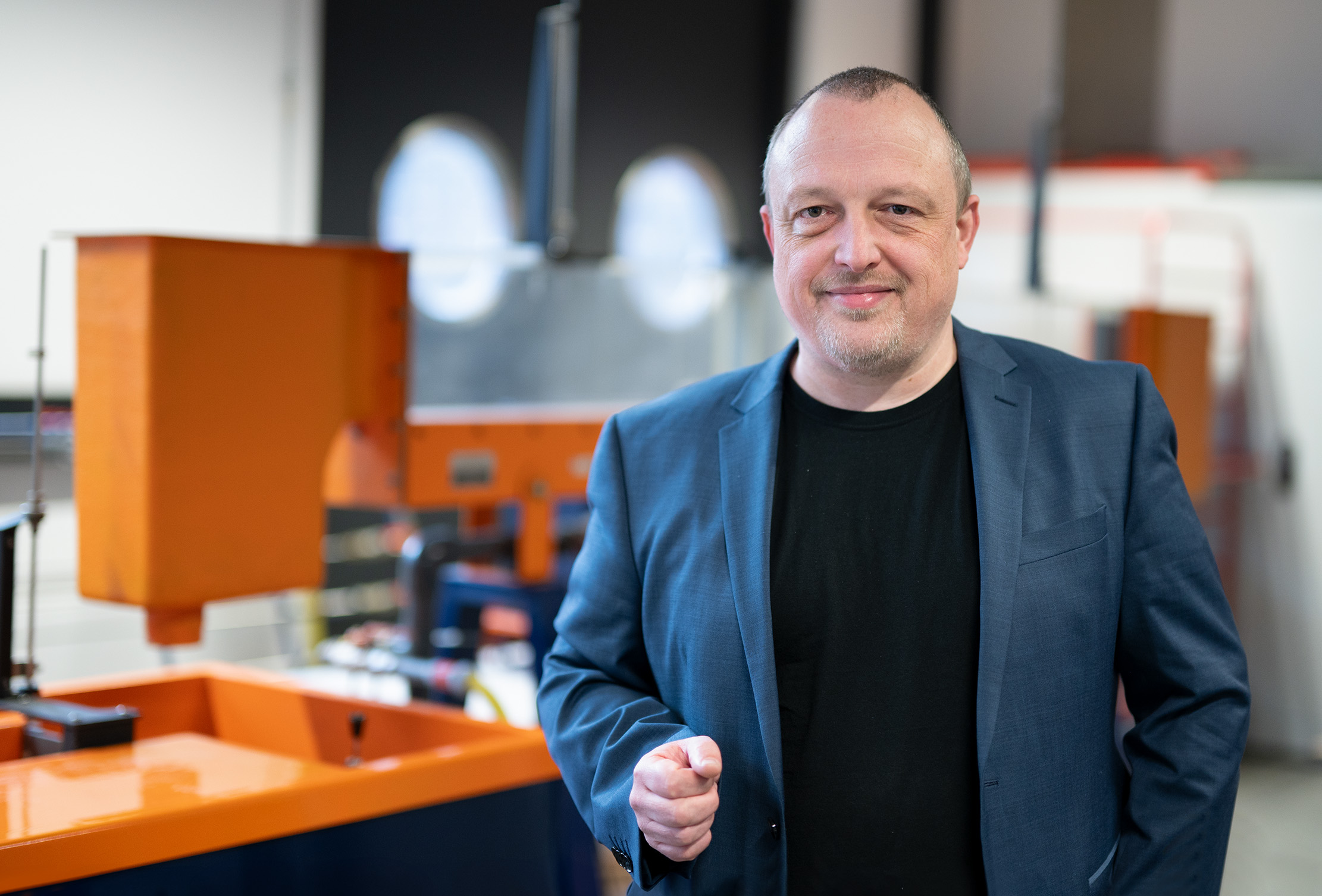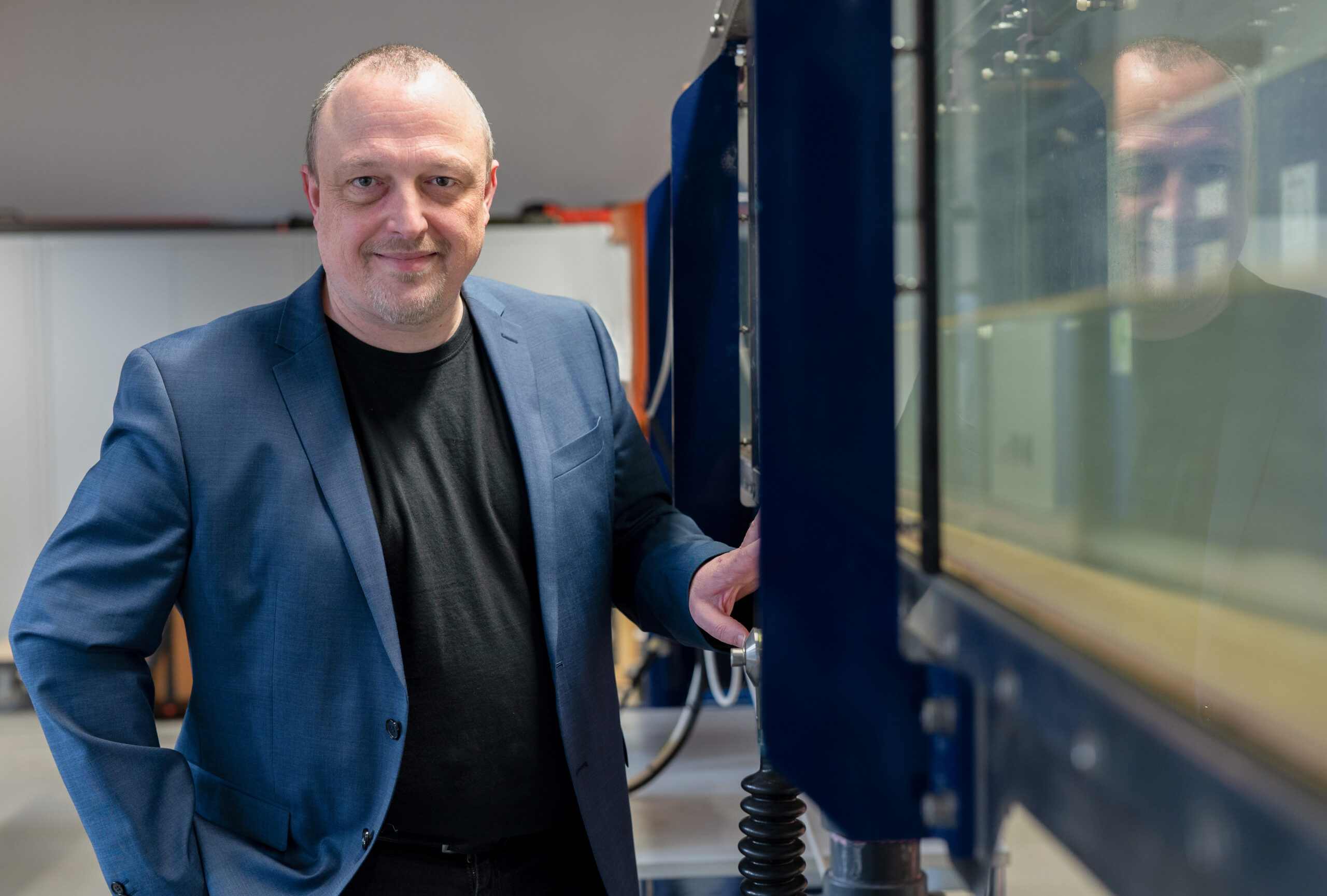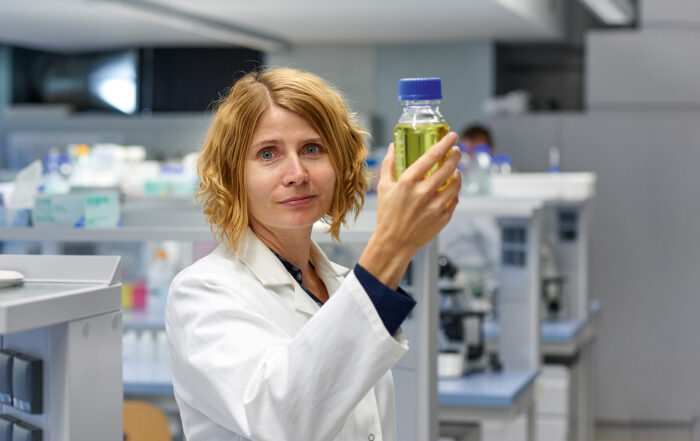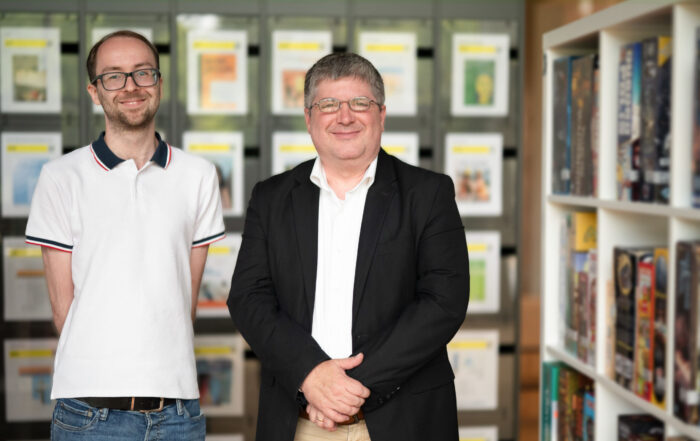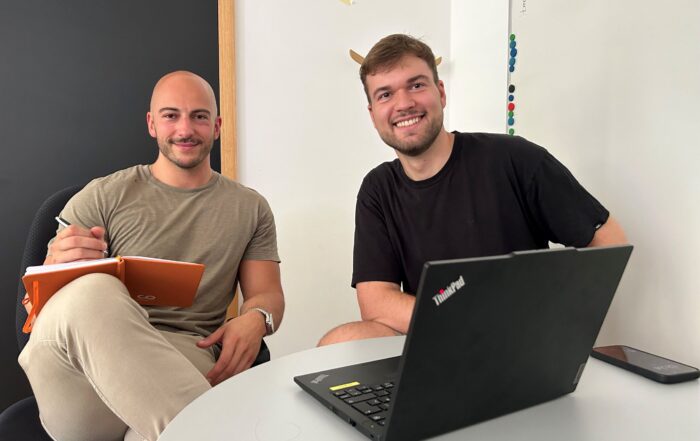15. March '24
from Natalie Schalk
If you want to minimize the risk of flooding, you have to do something locally.
To be more precise: before the town sign.
In a new research project, Coburg University of Applied Sciences wants to develop a modular system that supports local authorities in the intelligent planning of undeveloped areas outside of towns.
The project is funded by DATIpilot of the Federal Ministry of Education and Research.
The project partner is TNL Umweltplanung from Buttenheim (Bamberg district). It is becoming increasingly common for heavy rainfall to cause flooding, resulting in enormous damage.
In Bremen, dykes threatened to burst in December and January, in Bavaria numerous roads and railroad tracks were flooded and the region around Coburg was also severely affected.
But that is not the reason why Prof. Dr. Andreas Weiß from Coburg University of Applied Sciences is studying the topic.
“The approach is usually to react to the actual event when flooding occurs,” says Weiß.
There are technical solutions such as retention systems and many organizational solutions for prevention.
But the Coburg scientist doesn’t just want to tackle the problem.
But the causes. Together with the region Weiß researches and teaches at the Faculty of Design at Coburg University of Applied Sciences on topics such as urban water management and future-oriented urban drainage.
This year, he and his team are launching a research project aimed at helping local authorities to combat the causes of flooding through intelligent land use planning.
He is delighted that his concept for a “modular system for water management-optimized, climate-resilient, multifunctional land use” (BauWaOpKliNu) has been selected for funding by the German Agency for Transfer and Innovation (DATI) of the Federal Ministry of Education and Research (BMBF).
Of the 3,000 applications submitted throughout Germany for the new DATIpilot format, 300 were accepted.
Coburg University of Applied Sciences is represented with two projects: After UltraHip by Prof. Dr. Klaus Drese and Master’s student Jan Lützelberger, now also with BauWaOpKliNu.
150,000 euros have been applied for to drive the project forward at the university, plus 130,000 for the project partner TNL Umweltplanung from Buttenheim.
“This planning office fits in perfectly with our approach: they think far-sightedly and, where necessary, question the client’s ideas when it comes to environmental planning,” says Weiß.
“The collaboration also strengthens the transfer of research to the region – that’s important.”
In order to develop the modular system, the areas of various municipalities in the region are to be precisely evaluated together with TNL.
The special feature here is that the focus is not on flood protection in the localities, but on analyzing the catchment areas: Forest, meadow, arable land, photovoltaic or wind farms.
“If the water already seeps away better in the catchment areas, there won’t be that much impact on the villages. That’s why we look at undeveloped areas outside of towns,” explains Weiß.
The aim is to determine over a large area in the catchment area where water does not seep away, but flows away.
And why.
How do these so-called runoffs interact?
Which areas have the potential to retain water?
And how much?
What needs to change to achieve this?
The researchers at Coburg University of Applied Sciences will be looking closely at questions like these.
To do so, they want to use existing data, for example from geoinformation systems and terrain models from local authorities and the state.
The support of artificial intelligence will also be examined. Depending on various parameters for the permeability of the soil, it is possible to determine how water retention can be improved: Perhaps a simple engineering structure, a swale or a mound will suffice?
Perhaps an area should be managed differently?
Or can different uses be sensibly combined? Sponge city and sponge country Similar to the currently very popular concept of so-called “sponge cities”, Weiß’ approach is not to drain water away or let it flow away, but to store it for dry periods.
He shrugs his shoulders: “The aim of water management is always to retain water.”
But the Coburg professor sees much greater potential than in cities outside urban areas.
The problem is that this also affects more areas.
More interests.
For this reason, the modular system will compile, categorize and evaluate modules of measures that take all interests into account: Criteria such as the cost of a measure, the impact on the ecosystem and interactions with other land uses and social acceptance can thus be taken into account.
Involving the reality of local people’s lives is crucial for the head of the Coburg Master’s degree course in “Resource-efficient planning and building“.
The planned modular system for land use is therefore intended to provide a variety of starting points.
This will make it easier for local authorities, but also for landowners and special-purpose associations, for example, to find effective measures to make their immediate environment more resilient to the consequences of climate change.


